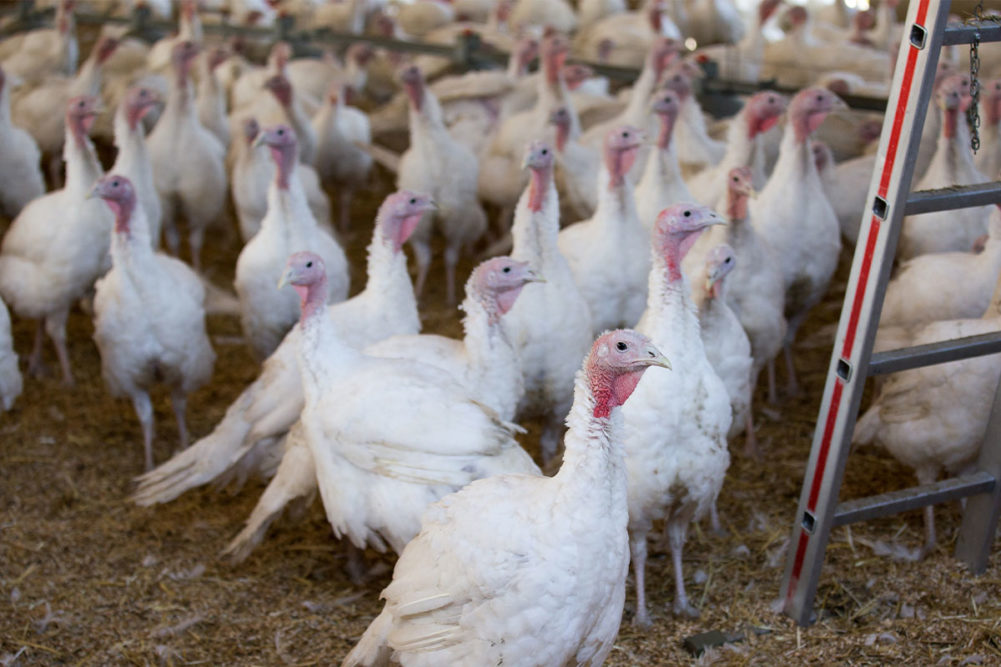Influenza (HPAI) has been confirmed in a commercial turkey flock in Meeker County, Minn., that supplies Jennie-O Turkey Store, a business unit of Hormel Foods Corp., Austin, Minn. Another case of HPAI also was found in a backyard flock in Mower County, Minn.
State officials have quarantined the affected premises and the flocks will be depopulated, according to the Animal and Plant Health Inspection Service of the US Department of Agriculture. The two confirmed cases of HPAI, which were disclosed on March 26, bring the total number of cases to 61 since Feb. 8, when a case was announced in a commercial turkey flock in Dubois, Ind.
“Jennie-O Turkey Store has been preparing for this situation and took extensive precautions to protect the health of the turkeys in its supply chain,” the company said. “Jennie-O Turkey Store will continue to work with the USDA Animal and Plant Health Inspection Service, Minnesota Board of Animal Health, Minnesota Department of Agriculture, as well as poultry industry associations on this issue. USDA and the National Turkey Federation are monitoring and responding to the situation and remind consumers that HPAI does not pose a food safety concern.”
In addition to Minnesota and Indiana, additional cases of HPAI have been confirmed in commercial poultry flocks in Delaware, Iowa, Kentucky, Maryland, Missouri, Nebraska, New York, South Dakota and Wisconsin. More than 14 million birds, from both commercial and backyard flocks, have been depopulated since the outbreak began.
The confirmation of HPAI in the United States has affected the egg commodity markets. Prices of some dried egg products jumped more than $1 a lb, or about 20%, last week and were up more than 30% since early March. Breaking egg prices in some cases surged as much as 50% for the week and were up 70% to 85% from earlier in the month.
The price advances constituted the largest week-over-week gains at least since another outbreak of HPAI in 2014-15. Prices then rose to levels far above current values, but some in the trade expected prices may challenge 2015 levels.
The bulk of the egg product price increases in 2015 occurred from mid-May to mid-August. This year’s advances are occurring earlier and coincide with increased demand ahead of the Easter holiday, although the bump in egg demand at Easter has not been that noticeable in recent years. The price increases also are occurring at a time of already-tight dried egg supplies, and some analysts surmised that panic buying was behind the sharp advances due to uncertainty about supplies in coming weeks.



